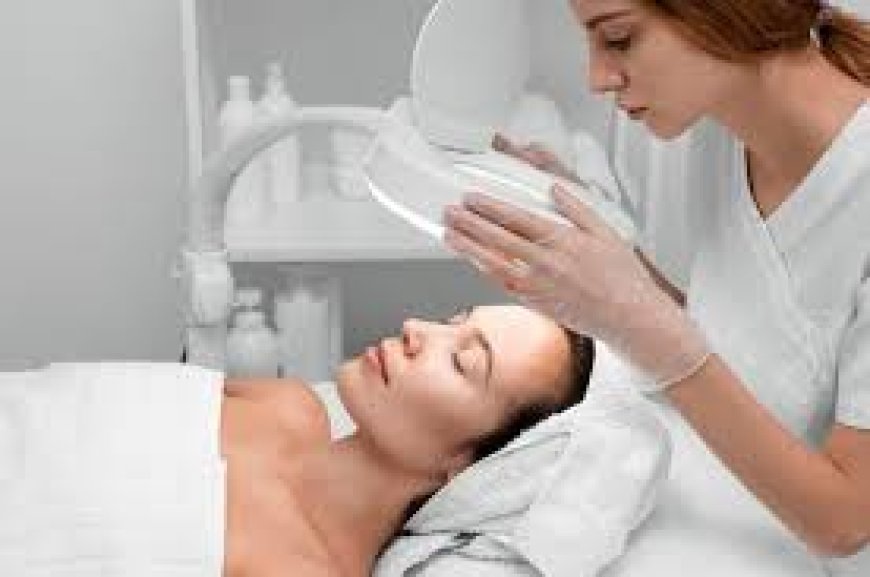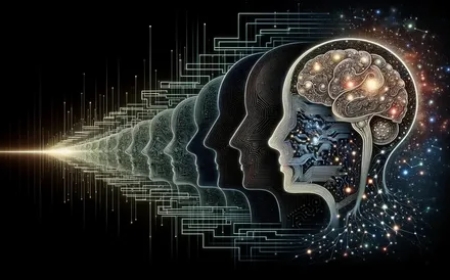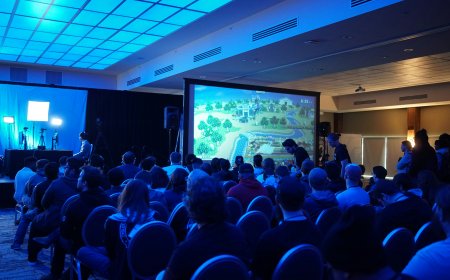The Evolving Landscape of Self-Care: From Ancient Remedies to Modern Apps
The landscape of self-care will continue to evolve. We can expect even more personalised approaches, driven by artificial intelligence and genetic insights, allowing for truly individualised health plans.

For centuries, people have sought ways to look after themselves, to soothe ailments, and to maintain good Health. Self-care, at its heart, is about taking an active role in your own well-being. It is not a new concept, but its forms and approaches have certainly changed dramatically over time. Think about it: our ancestors relied on natural remedies and community support, while today, we have access to a vast array of digital tools and professional guidance at our fingertips. This article explores how self-care has evolved, from the wisdom of the past to the innovations of the present, and how you can apply these insights to your own life.
Ancient Roots: The Dawn of Self-Care
Imagine a time before pharmacies and hospitals. How did people manage their health? They turned to nature and to accumulated knowledge passed down through generations. Ancient civilisations across the globe practiced forms of self-care deeply rooted in their environments and cultural beliefs.
In ancient Egypt, for example, medical papyri reveal sophisticated knowledge of Herbal Treatment for Bronchiectasis and hygiene practices. They understood the importance of cleanliness in preventing illness, and used specific plants for their medicinal properties. Similarly, traditional Chinese medicine, with its emphasis on balancing the body’s energy, has a history spanning thousands of years. Acupuncture, herbal medicine, and dietary therapy were, and still are, central to its approach to health and healing. You took responsibility for your own balance and harmony.
The Greeks, too, contributed significantly. Hippocrates, often called the "Father of Medicine," stressed the importance of diet, exercise, and rest. He believed the body had an innate ability to heal itself, and that doctors should assist this natural process. This philosophy empowered individuals to take an active role in their recovery. You focused on lifestyle choices to maintain equilibrium.
Across indigenous cultures worldwide, knowledge of local flora and fauna was vital. Shamans and traditional healers would guide their communities in using plants for medicinal purposes, often combined with spiritual practices. These holistic approaches recognised the interconnectedness of physical, mental, and spiritual well-being. You learned from your elders and the land around you.
These ancient practices share common threads: a reliance on natural resources, a focus on prevention, and a deep respect for the body's intrinsic ability to heal. They were often communal, with families and communities supporting each other in health and illness. You were part of a collective effort to stay well.
The Middle Ages and Beyond: A Shift in Focus
As societies developed, so did the approaches to health. During the Middle Ages, the role of physicians and organised healthcare systems began to grow, particularly in urban centres. While folk remedies and home care remained prevalent, formal medical institutions emerged. This period saw the rise of apothecaries, predecessors to modern pharmacies, where you could obtain prepared medicines.
The Industrial Revolution brought about significant changes in living conditions, often leading to new health challenges like infectious diseases in crowded cities. Public health initiatives, such as improved sanitation and vaccination programmes, became crucial forms of collective self-care, as they protected entire populations. You benefited from broader societal improvements.
The 19th and early 20th centuries saw rapid advancements in scientific medicine. The discovery of germs, the development of antibiotics, and improved surgical techniques transformed healthcare. This era sometimes led to a more passive role for the patient; you relied heavily on the doctor to cure your illness. While revolutionary, this shift occasionally overshadowed the individual's role in daily self-care and prevention.
The Rise of Modern Self-Care: Empowering the Individual
The latter half of the 20th century and the beginning of the 21st century have witnessed a renewed emphasis on personal responsibility for health. This resurgence stems from several factors: increased access to health information, a growing awareness of chronic diseases linked to lifestyle, and a desire for more holistic approaches to well-being.
Today, self-care encompasses a broad spectrum of activities aimed at maintaining physical, mental, and emotional health. It is not just about treating illness; it is about promoting wellness and resilience. You have more choices than ever before.
Physical Self-Care: This category includes the basics: eating a balanced diet, getting regular exercise, ensuring adequate sleep, and maintaining good hygiene. It also extends to preventative measures like regular check-ups, vaccinations, and managing existing conditions. For instance, if you have a chronic condition, carefully following your treatment plan, monitoring your symptoms, and communicating with your healthcare team are all essential aspects of physical self-care. You actively manage your body's needs.
Mental and Emotional Self-Care: This is increasingly recognised as vital. It involves activities that support your mental well-being and help you manage stress. This could mean practicing mindfulness or meditation, engaging in hobbies you enjoy, spending time in nature, maintaining strong social connections, or seeking professional help when needed. You prioritise your inner peace. Journaling, reading, or simply taking a few moments to breathe deeply can make a significant difference.
Spiritual Self-Care: For many, this involves activities that connect them to their sense of purpose, values, or a higher power. This might include religious practices, spending time in quiet reflection, engaging in acts of kindness, or connecting with nature. You nourish your spirit.
The Digital Revolution: Apps and Wearables
One of the most significant recent developments in self-care is the proliferation of technology. Smart devices and mobile applications have transformed how we monitor our health, access information, and connect with support.
Health and Fitness Apps: From calorie counters and exercise trackers to meditation guides and sleep monitors, there is an app for almost every aspect of health. These tools can help you set goals, track progress, and stay motivated. For example, you can use an app to monitor your daily steps, record your food intake, or guide you through a yoga session. You can see your progress visually.
Telehealth and Online Consultations: The ability to consult with healthcare professionals remotely has made healthcare more accessible, particularly for those in remote areas or with mobility challenges. You can receive medical advice, prescriptions, and even therapy sessions from the comfort of your home. This convenience allows you to seek help promptly.
Wearable Technology: Smartwatches and fitness trackers constantly monitor your heart rate, sleep patterns, activity levels, and even blood oxygen. This data can provide valuable insights into your health and prompt you to make healthier choices. You can track your vitals throughout the day. For example, if your sleep quality declines, your wearable might suggest adjustments to your evening routine.
Online Support Communities: The internet has fostered vibrant online communities where people facing similar health challenges can connect, share experiences, and offer mutual support. These forums can be invaluable for emotional support and practical advice. You can find solidarity and understanding.
Complementary and Alternative Medicine (CAM) in Self-Care
Alongside conventional medicine, many individuals explore Complementary and Alternative Medicine (CAM) as part of their self-care strategy. CAM encompasses a wide range of practices, including acupuncture, chiropractic care, massage therapy, yoga, and various herbal remedies. People often turn to CAM to manage chronic conditions, reduce stress, or simply enhance their overall well-being.
When considering CAM approaches, it is crucial to approach them with an informed perspective. Always discuss any CAM therapies with your doctor, especially if you are taking prescription medications or have existing health conditions. Some herbal remedies can interact with conventional drugs or have side effects. For example, some individuals explore a Herbal Supplement for Bronchiectasis to help manage their symptoms. However, it is vital to remember that such supplements should never replace prescribed medications or a comprehensive treatment plan developed with your medical team. You must prioritise safety and informed decision-making.
Integrating Past and Present: A Holistic Approach
The true power of modern self-care lies in our ability to integrate ancient wisdom with contemporary scientific knowledge and technological advancements. You do not have to choose between old and new; you can combine them for a truly holistic approach.
- Embrace the basics: Remember the timeless importance of a healthy diet, regular movement, and sufficient rest. These are the foundations upon which all other self-care practices build. You nurture your body fundamentally.
- Leverage technology wisely: Use apps and wearables to gain insights and stay motivated, but do not let them replace genuine human connection or professional medical advice. You use tools to empower yourself.
- Listen to your body: Pay attention to its signals and respond accordingly. This ancient principle remains as relevant as ever. You become attuned to your own needs.
- Seek professional guidance: Self-care is not about going it alone. It means actively engaging with healthcare professionals and seeking their expertise when needed. You build a support team around you.
- Prioritise mental and emotional well-being: Recognise that your mind and emotions play a crucial role in your overall health. You nourish your inner world.
- Connect with others: Strong social connections are a powerful form of self-care. Share your experiences, offer support, and receive it in return. You foster community.
The Future of Self-Care
The landscape of self-care will continue to evolve. We can expect even more personalised approaches, driven by artificial intelligence and genetic insights, allowing for truly individualised health plans. Preventative medicine will likely become even more central, empowering you to avoid illness rather than just treating it. Wearable technology will become more sophisticated, offering even deeper insights into your physiological state.
Ultimately, the essence of self-care remains constant: taking proactive steps to safeguard and enhance your well-being. Whether you are drawing on ancient remedies, All Natural Organic Supplements, embracing modern apps, or a combination of all, the goal is to live a healthier, happier, and more fulfilling life. You are the architect of your own well-being. Embrace the journey.












































































